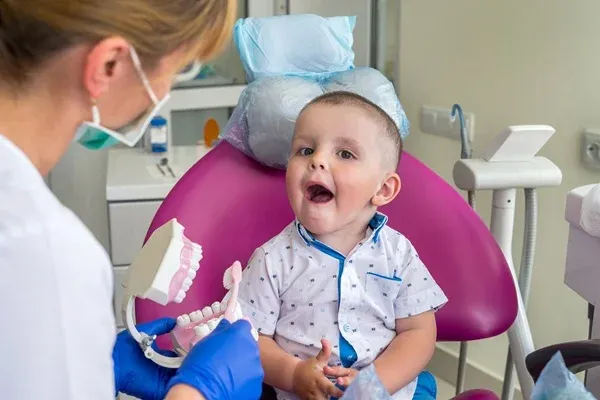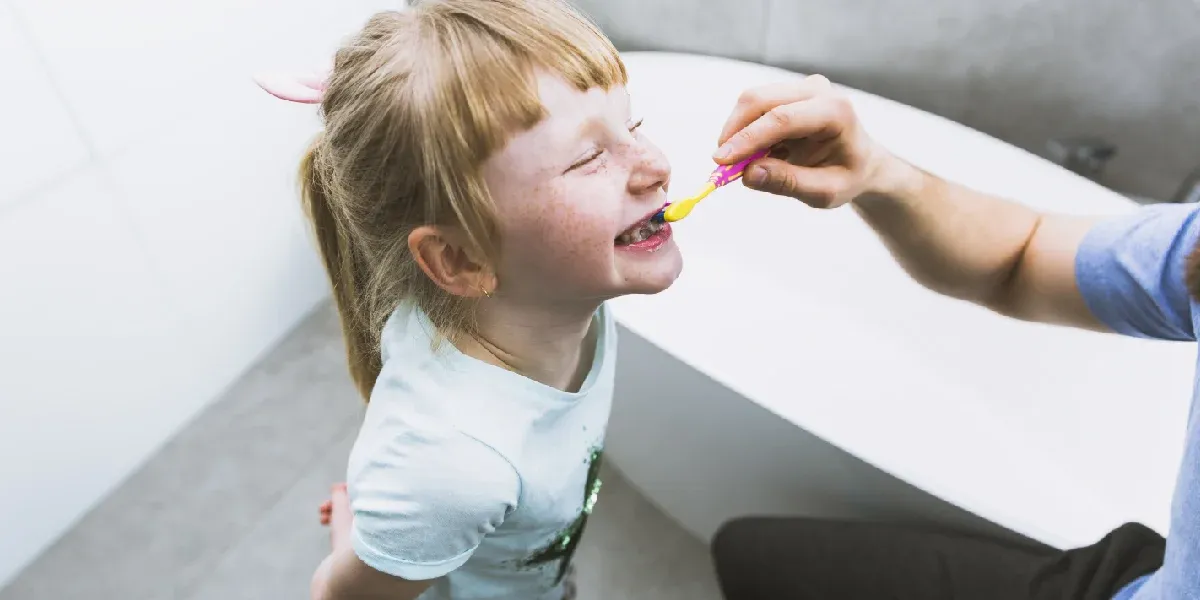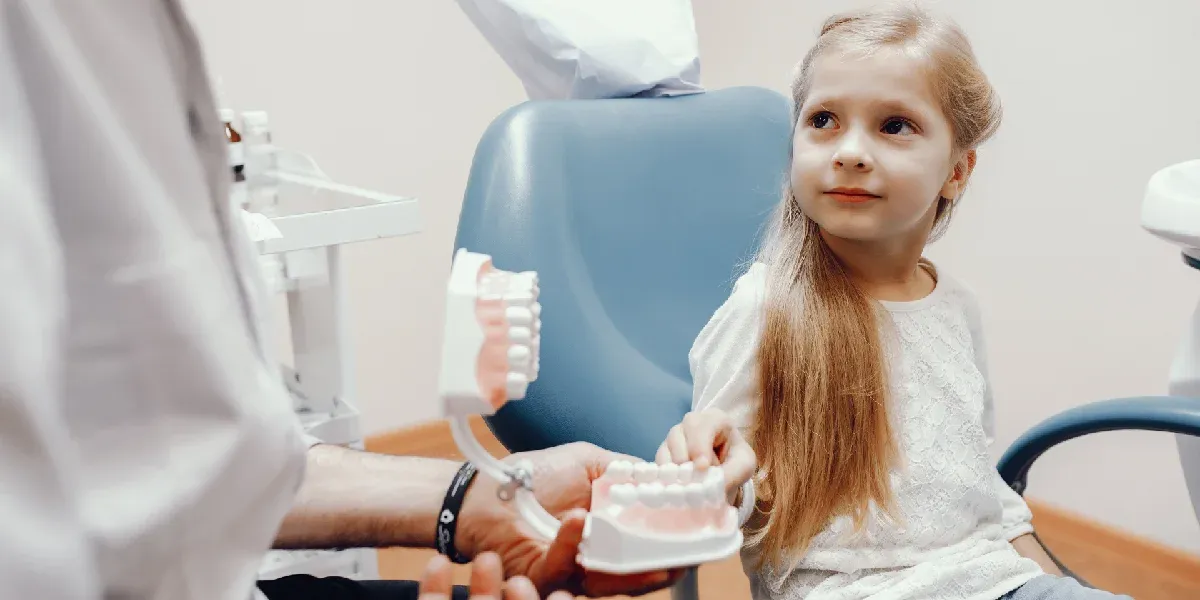
Long-Term Oral Health Maintenance for Kids
Setting the Foundation for Lifelong Smiles
As parents and caregivers, we want to see our children grow up with bright, healthy smiles. However, the habits they develop in childhood lay the foundation for a lifetime of good oral health. From the moment their first tooth appears to their teenage years, every step in their dental journey plays a crucial role in preventing future complications.
Our previous blogs explored ways to prevent common oral hygiene issues and orthodontic problems in children. In this final part of the series, we'll take a broader look at long-term oral health maintenance. This means going beyond just preventing cavities and establishing habits that will keep their teeth and gums strong for years.
This guide will cover essential steps to ensure your child's oral health remains a priority, including the importance of baby teeth, daily oral hygiene routines, the impact of nutrition, regular dental visits, and habits that could affect future dental health. By the end of this blog, you'll clearly understand how to set your child up for a lifetime of healthy, confident smiles.
Baby Teeth: The First Step Toward Lifelong Oral Health
Many parents think baby teeth aren't that important since they eventually fall out, but that's a big misconception. These tiny teeth play a huge role in a child's overall development. They help with chewing speech and even guide permanent teeth into the correct position. If baby teeth aren't cared for properly, kids can develop cavities early on, leading to pain, eating difficulties, and even long-term dental issues like misaligned adult teeth.
Oral care should start before the first tooth even appears. Wiping a baby's gums with a clean, damp cloth after feedings helps remove bacteria and keep their mouth healthy. Once that first little tooth pops up, it's time to start brushing with a soft toothbrush and a tiny smear of fluoride toothpaste. As they grow, kids should start using a pea-sized amount of toothpaste, but always under supervision to make sure they don't swallow it.
Another key step in early oral health is the first dental visit. Many parents wait until their child has a complete set of teeth. Still, dentists recommend scheduling the first checkup by their first birthday or within six months of their first tooth. These early visits help spot potential issues, provide fluoride treatments, and give parents expert guidance on caring for their child's teeth at home.
Thumb-sucking and pacifier use are also important to keep an eye on. While these habits are perfectly normal for infants, however, using them for too long can cause teeth to shift out of place, leading to bite issues that might require braces later on.

The Importance of Regular Dental Visits
We all know that brushing and flossing are top priorities, but regular dental checkups are just as crucial for maintaining a child's oral health. These visits help prevent problems before they start, catch early signs of decay, and ensure proper tooth and jaw development.
Dentists recommend scheduling a child's first visit by their birthday or when the first tooth appears. Early checkups help kids feel comfortable at the dentist, reducing fear and anxiety later. After that, routine six-month visits allow dentists to apply fluoride, place protective sealants, and monitor for issues like cavities or misaligned teeth.
Regular checkups also save parents from costly treatments by addressing concerns early. Keeping dental visits stress-free and treating them as a regular part of health care encourages children to maintain good habits for life. A consistent home dental routine and professional checkups lay the foundation for a healthy, confident smile.
Establishing a Strong Daily Routine
Getting kids to brush and floss daily isn't always easy, but building a strong routine early on makes all the difference. The key is to make oral hygiene a habit, not a chore.
Brushing should start as soon as the first tooth appears, but as kids grow, they need to learn how to do it correctly on their own. Dentists recommend brushing twice a day for two minutes using a fluoride toothpaste. Parents should supervise young kids to ensure they're brushing all surfaces of their teeth, especially the back molars where cavities often start.
Flossing is just as important, but many parents tend to overlook it. Once a child's teeth start touching, usually around age two or three, flossing should become part of their routine. Traditional floss can be tricky for little hands, so floss picks or water flossers can make the process easier and more fun.
Choosing the right toothbrush and toothpaste also matters. A small, soft-bristled toothbrush with a comfortable grip works best for younger kids. \ When it comes to toothpaste, fluoride is a must, but if kids dislike the strong minty taste, fruity or mild flavors are great alternatives.
Did You Know?
- Cavities are one of the most common chronic childhood diseases.
- Kids who start seeing the dentist early are less likely to develop dental anxiety.
- Fluoride strengthens enamel and helps prevent cavities before they start.

Eat Right, Smile Bright: How Nutrition Shapes Your Child's Oral Health
What kids eat doesn't just affect their overall health; it also plays a huge role in their dental development. A well-balanced diet helps strengthen teeth, prevent cavities, and support healthy gums. On the flip side, too much sugar and acidic foods can weaken enamel and lead to decay. The good news? Small dietary changes can make a big difference in keeping those little smiles healthy and strong.
Calcium-rich foods like milk, cheese, and yogurt help build strong enamel and protect against tooth decay. Crunchy fruits and vegetables, like apples, carrots, and cucumbers, act as natural toothbrushes by scrubbing away plaque while stimulating saliva production, which helps wash away bacteria. Even nuts and lean proteins provide essential minerals like phosphorus, strengthening teeth from the inside out.
One of the biggest culprits behind cavities is hidden sugar. Many snacks marketed as "healthy" for kids contain high amounts of sugar that can feed harmful bacteria in the mouth. Instead of sugary drinks, encourage kids to drink water as their primary beverage. Water not only keeps them hydrated but also helps rinse away food particles and prevent dry mouth, which can contribute to cavities.
Snacking habits also matter. Frequent snacking, especially on sticky or sugary foods, creates a constant supply of sugar for bacteria, increasing the risk of cavities. If kids do snack, it's best to stick to tooth-friendly options like cheese cubes, nuts, or plain yogurt and limit snacks between meals to give their teeth time to recover.
Teaching kids to make smart food choices early on helps prepare them for a lifetime of good oral health. By balancing their diet with nutrient-rich foods, limiting sugar intake, and making water their go-to drink, parents can help protect their little ones from dental problems before they even start.
A Lifetime of Healthy Smiles Starts Now
Good oral health isn't just about preventing cavities, it's about building lifelong habits that support strong teeth, healthy gums, and confident smiles. From the early care of baby teeth to daily routines, smart nutrition, and regular dental visits, every step shapes a child's dental future.
Throughout this blog series, we've explored how to prevent common oral health issues, address orthodontic concerns, and establish routines that set kids up for success. Now, it all comes down to consistency. The habits formed in childhood will follow them into adulthood, making early prevention and education the best tools for lifelong oral health.
As parents and caregivers, your role is key in guiding children toward a future free of dental problems. By prioritizing oral care today, you're giving them the best gift of all—a healthy, confident smile that lasts a lifetime.
Contact your kids' dentist in Stockton, Dr. Sajjad Rizvi, D.D.S. at Happy Kids Dental, to know more about Long-Term Oral Health Maintenance for Kids.
Resource:
Most Common Causes of Tooth Decay in Children
*This media/content or any other on this website does not prescribe, recommend, or prevent any treatment or procedure. Therefore, we highly recommend that you get the advice of a qualified dentist or other medical practitioners regarding your specific dental condition*
Subscribe To Our Newsletter
Get Updates And Learn From The Best


